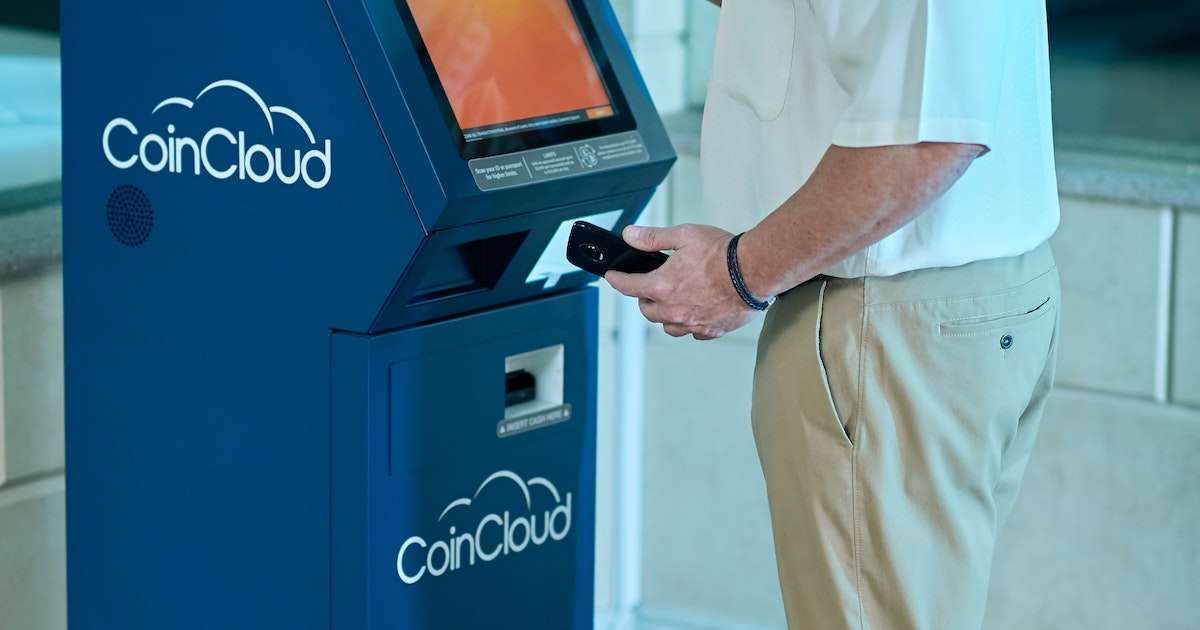
10 Most Common Bitcoin Use Cases
Bitcoin Use Cases: In the realm of cryptocurrency, Bitcoin reigns supreme as the pioneering digital currency that ignited a revolution in the world of finance and technology. Since its inception in 2009 by the pseudonymous creator Satoshi Nakamoto, Bitcoin has evolved beyond a mere speculative asset and transformed into a versatile tool with a wide range of practical applications.
Bitcoin Use Cases
In this article, we will delve into the 10 most common Bitcoin use cases, shedding light on how this decentralized digital currency is reshaping various sectors of our economy and society.
Bitcoin as a Digital Gold: A Store of Value

One of the most fundamental Bitcoin use cases is its role as a digital store of value, often compared to gold. Bitcoin’s scarcity, with a maximum supply of 21 million coins, and its decentralized nature make it an attractive choice for those seeking to protect their wealth from inflation and economic instability. Investors have turned to Bitcoin as a hedge against traditional financial assets, viewing it as a safe haven asset in times of economic uncertainty. This use case is vital in preserving and growing one’s wealth over time.
Bitcoin’s utility as digital gold is not restricted to individual investors. Institutional players, including hedge funds and publicly traded companies, have also started to allocate a portion of their portfolios to Bitcoin. Companies like MicroStrategy and Tesla have made headlines by adding Bitcoin to their balance sheets, demonstrating its growing acceptance as a reserve asset.
Inflation erodes the purchasing power of fiat currencies over time, causing individuals to lose value stored in their savings. Bitcoin offers a solution to this problem, as it is designed to be deflationary. The controlled issuance of new Bitcoins through a process called mining ensures that the supply remains limited and predictable. As a result, Bitcoin has gained popularity as a hedge against inflation, allowing users to protect their wealth from the devaluation of traditional currencies.
Governments around the world have responded to economic challenges by printing more money, leading to concerns about rising inflation. In such circumstances, Bitcoin becomes an attractive choice for individuals and institutions looking to safeguard their assets and preserve their purchasing power.
Cross-Border Payments: Facilitating Global Transactions

Another common Bitcoin use case is its role in facilitating cross-border payments. Traditional international money transfers can be slow, costly, and subject to the volatility of foreign exchange rates. Bitcoin, on the other hand, offers a borderless and efficient alternative for sending and receiving funds across the globe.
Bitcoin’s decentralized nature allows users to bypass intermediaries like banks and payment processors. This not only reduces transaction fees but also accelerates the transfer process. Additionally, Bitcoin operates 24/7, providing users with the flexibility to make transactions at any time, regardless of traditional banking hours or holidays.
Remittances, the act of sending money to family members in another country, have long been burdened by high fees and slow processing times. Bitcoin simplifies this process by enabling instant, low-cost transfers. Migrants can send Bitcoin to their loved ones, who can then easily convert it into their local currency. This use case has the potential to positively impact the lives of millions of people who rely on remittances for financial support.
Online Commerce: Accepting Bitcoin as Payment

The adoption of Bitcoin as a means of payment for goods and services in the online commerce sector is another common Bitcoin use case. An increasing number of businesses, both large and small, now accept Bitcoin as a form of payment, expanding their customer base to include the global cryptocurrency community.
Bitcoin transactions offer benefits for both merchants and consumers. For merchants, Bitcoin payments are irreversible, reducing the risk of chargebacks and fraud. Additionally, transaction fees for Bitcoin payments are typically lower than those associated with credit card payments. On the consumer side, using Bitcoin can provide privacy, security, and convenience when making online purchases.
To facilitate the integration of Bitcoin payments into online stores, various payment processors and gateways have emerged. These services enable businesses to accept Bitcoin without the need for in-depth technical knowledge. Popular payment processors like BitPay and Coinbase Commerce have made it easy for merchants to start accepting Bitcoin and other cryptocurrencies.
Investment and Speculation: Trading Bitcoin

While Bitcoin’s potential as a store of value and hedge against inflation has attracted many long-term investors, it has also become a hotbed for traders and speculators. The cryptocurrency markets operate 24/7, providing ample opportunities for traders to profit from price fluctuations.
Bitcoin’s price volatility has drawn traders seeking short-term gains. Day trading, swing trading, and other trading strategies have become prevalent in the cryptocurrency space. This activity has given rise to a bustling ecosystem of cryptocurrency exchanges, where traders can buy, sell, and speculate on the price of Bitcoin and other cryptocurrencies.
The growing popularity of Bitcoin trading has led to the development of financial products and derivatives tied to Bitcoin’s price. Futures contracts, options, and exchange-traded funds (ETFs) that track Bitcoin’s performance have emerged in both traditional and cryptocurrency markets. These products provide investors with various ways to gain exposure to Bitcoin’s price movements.
Decentralized Finance (DeFi): Bitcoin as Collateral

Decentralized Finance, or DeFi, is a rapidly growing sector within the cryptocurrency space that leverages blockchain technology to recreate traditional financial services in a decentralized and permissionless manner. While Bitcoin itself is not often used directly in DeFi applications due to its limited programmability, it can still play a significant role as collateral.
In DeFi, users can lock up their Bitcoin as collateral to borrow other cryptocurrencies or stablecoins. This enables them to access liquidity without selling their Bitcoin holdings. DeFi lending platforms like Compound and MakerDAO allow users to participate in various financial activities, such as earning interest on their collateral or minting stablecoins for use in trading or other investments.
The Lightning Network is a second-layer scaling solution built on top of the Bitcoin blockchain. It aims to enhance the scalability and speed of Bitcoin transactions, making it more suitable for micropayments and day-to-day transactions. While still in its early stages, the Lightning Network holds the potential to unlock a wide range of new Bitcoin use cases.
One of the most promising applications of the Lightning Network is enabling fast and inexpensive micropayments. Content creators, such as artists, writers, and musicians, can receive small payments directly from their audience without being burdened by high transaction fees. Additionally, it can be used for instant and low-cost cross-border remittances, as well as in retail settings for everyday purchases.
Bitcoin ATMs: Easy Access to Cryptocurrency

Bitcoin ATMs, also known as BTMs, have become a practical means of accessing and purchasing Bitcoin. These machines allow users to exchange cash for Bitcoin or sell their Bitcoin for cash, providing a bridge between the digital cryptocurrency world and the physical world of fiat currency.
Bitcoin ATMs are strategically located in various cities worldwide, making it convenient for individuals to buy or sell Bitcoin without the need for a traditional exchange or online platform. This accessibility has contributed to the broader adoption of Bitcoin among people who may not have access to online trading platforms or bank accounts.
Many Bitcoin ATMs offer a user-friendly experience, guiding users through the process of buying or selling Bitcoin with step-by-step instructions on the machine’s interface. Some ATMs even allow users to create a digital wallet on the spot, making it easier for newcomers to enter the cryptocurrency space.
Charitable Giving: Bitcoin Donations

Bitcoin’s utility extends to the realm of charitable giving, offering a transparent and efficient way for donors to support causes they care about. Several charitable organizations and nonprofits now accept Bitcoin donations, allowing individuals to contribute to various social and humanitarian efforts using cryptocurrency.
One of the key advantages of using Bitcoin for charitable donations is the transparency of blockchain technology, and this is a common Bitcoin use case. Donors can track their contributions on the blockchain, ensuring that their funds are used as intended. This level of transparency helps build trust between donors and charitable organizations.
Moreover, Bitcoin donations can quickly cross borders, making it easier for people worldwide to support causes in different regions. In times of crisis, such as natural disasters or humanitarian emergencies, Bitcoin donations can provide immediate assistance without the need for intermediaries or lengthy transaction processes.
Privacy and Financial Sovereignty: Self-Custody of Bitcoin

For individuals who value privacy and financial sovereignty, self-custody of Bitcoin is a common use case. Self-custody refers to the practice of holding and managing your Bitcoin independently, without relying on third-party custodians or exchanges.
Self-custody offers users full control over their funds and private keys, eliminating the risk of exchange hacks or custodial mishaps. By storing Bitcoin in a hardware wallet or other secure storage solutions, individuals can protect their assets from theft and unauthorized access.
This use case aligns with the core principles of Bitcoin, which emphasize financial sovereignty and autonomy. Bitcoin users who value privacy and wish to maintain control over their financial assets often opt for self-custody as a way to uphold these principles.
Education and Research: Bitcoin’s Impact on Academia

Bitcoin’s impact extends beyond financial transactions and investments; it has also found its way into academic circles and research institutions. Researchers and educators have recognized the importance of understanding Bitcoin’s underlying technology and its implications for various fields.
Many universities and online platforms now offer courses and programs dedicated to blockchain technology and cryptocurrencies. These courses cover topics such as blockchain development, smart contracts, and the economic and societal impact of cryptocurrencies like Bitcoin. Academics and students alike have the opportunity to delve into these subjects, contributing to the broader knowledge and understanding of the technology.
Moreover, academic research on Bitcoin and blockchain technology has led to advancements in areas like cryptography, distributed systems, and computer science. Researchers continue to explore the potential applications of blockchain technology beyond cryptocurrencies, including supply chain management, voting systems, and digital identity.
Bitcoin as a Financial Inclusion Tool: Banking the Unbanked

One of the profound impacts of Bitcoin is its potential to bring financial services to individuals who are underserved or excluded from the traditional banking system. Around the world, there are billions of people who lack access to basic banking services, including a bank account, credit, and savings options. Bitcoin can play a crucial role in addressing this issue.
In regions with limited or unreliable banking infrastructure, Bitcoin wallets can be created and accessed using just a smartphone and an internet connection. This means that even those without traditional identification or access to brick-and-mortar banks can participate in the global economy. They can receive payments, send remittances, and save in Bitcoin, providing a degree of financial inclusion that was previously unattainable.
Conclusion
Bitcoin’s journey from a whitepaper to a global phenomenon has been marked by its versatility and adaptability. While it started as a digital currency, Bitcoin has evolved into a multi-faceted asset with various practical applications. From serving as a store of value and a hedge against inflation to revolutionizing cross-border payments and supporting charitable endeavors, Bitcoin has demonstrated its potential to reshape industries and empower individuals.
As the cryptocurrency ecosystem continues to evolve, it’s likely that Bitcoin will find even more innovative use cases. Whether you are an investor, a merchant, a remittance sender, or someone who values financial sovereignty and privacy, Bitcoin offers a range of opportunities and possibilities. The common Bitcoin use cases outlined in this article are just the beginning of what this groundbreaking technology has to offer.
Tobi brings stories to life as the Content Writer and Creator at Dtunes, blending creativity with strategy to connect with audiences. When she’s not crafting content, you’ll find her traveling, meeting new people, or trying out exciting things.




